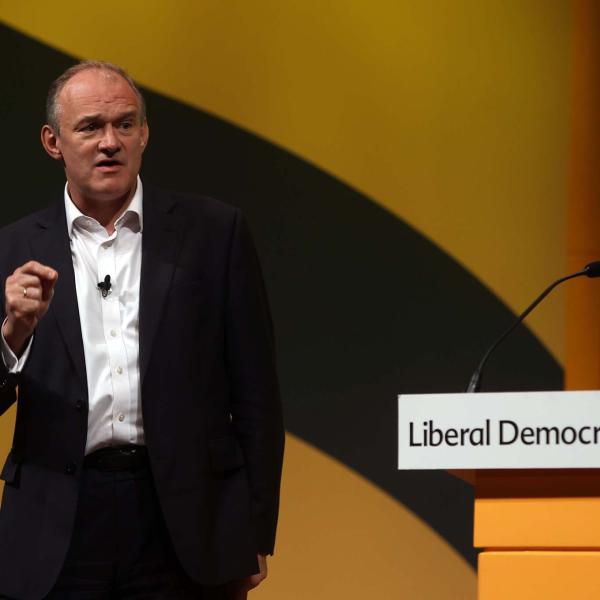Labour promised £75 billion a year in additional spending and £50 billion of additional taxes. The Liberal Democrats are also aiming for tens of billions of pounds in extra spending partially funded by more tax. Yesterday’s Conservative manifesto was much more, well, conservative.
For Labour there is money for everything — free childcare, free university tuition, more generous pensions, more for schools, the NHS and welfare. The Tories seem to be betting on the opposite strategy: we can afford little and will promise less.
They didn’t need to insist that more people pay for their own domiciliary care, but they did. While there is extra money for those going into residential care there is no longer any intention to put a cap on the amount anyone has to pay for social care. The message is clear enough. Where people have the assets they will be expected to pay for themselves.
The message on ending the triple-lock pension and means-testing winter fuel payments is similar. If we are going to spend a bit more on social care we need to rein in spending on better-off pensioners. The ending of the triple lock and its replacement by a double lock still has the pension rising by the faster of earnings and prices, which makes little sense, but is a modest improvement on promising 2.5 per cent increases even if prices and earnings are not growing at all.
Given the relative economic position of pensioners and the long-term challenges we face as the population ages this looks more credible than promises to protect all these benefits and even, as Labour suggests, halt any increase in the state pension age beyond age 66.
That sense of making choices is even there in the minutiae. There it is again on free school meals for five, six, and seven-year-olds. The choice is to stop them and spend the money on breakfast clubs and schools generally. It’s either/or, not both/and.
That’s not because they have signed up to an absolute commitment not to raise the main taxes, not this time. There are modest promises to raise further the point at which income tax becomes payable, and the point at which the 40p rate kicks in.
But a Conservative government would have the flexibility to increase these taxes. That is a much more sensible position than we have had over this parliament with increases in income tax, NI and VAT ruled out. The chancellor came a cropper in March when he tried to introduce a modest increase in NI for the self-employed in contravention of the 2015 manifesto. One assumes that, if still at No 11, he would have another go in the next parliament.
Two big areas where there are promises of extra cash are for the NHS and for schools. While precise comparisons are hard, there is strikingly little difference between Labour and the Conservatives in their funding promises for the NHS.
The Conservatives are promising a real increase of £8 billion over the next five years. That sounds like a lot but it won’t go far. Nor will Labour’s only slightly less modest offering.
And while there is quite a lot — especially for a Conservative manifesto — on the private sector, there seems to be no mention of a pay offer to public sector workers. Yet keeping to the 1 per cent annual cap looks increasingly difficult.
The Conservatives do not appear to have felt the need to spell out much detail. But they have left themselves room for manoeuvre. A balanced budget can apparently now wait until the middle of the next decade. George Osborne really is history.
Paul Johnson is director of the Institute for Fiscal Studies. Follow him on twitter @PJTheEconomist.
This article first appeared in The Times and is rreproduced here in full with permission.








